In the last two years the number of $5m-plus sales in New Zealand tripled as the country's super-rich set out to bag a better trophy home. OneRoof’s Catherine Masters reports on a luxury housing market that seems to be immune to the price pressures being felt elsewhere.
There is more wealth in the upper price bracket of the residential market than ever before in New Zealand, say those dealing in $10 million-plus sales.
Agents are seeing that wealth displayed across people with businesses which have done well out of the Covid pandemic to those who have seen massive equity gains in their existing properties as prices boomed over the last 24 months.
While the middle and bottom are now struggling from pressures such as rising interest rates and inflation, the top of the market appears to be swimming along as people with that amount of wealth are largely immune.
Start your property search
What agents on the ground are seeing is backed up by new OneRoof statistics from its data partner Valocity which has tracked high-end transactions.
Between 2015 and 2019, the annual average number of residential properties selling for $5m and above was 100, while the annual average number of $10m-plus sales was 11. By 2020, the number of $5m-plus sales hit 211, 16 of which were in the $10m-plus bracket. The total value of sales in the $5m-plus bracket for 2020 was $1,413,846,992 – almost double the total amount spent on top-end properties in 2019.
The top end did even better in 2021, with the number of $5m-plus sales jumping 51% to 334 and the number of $10m-plus sales reaching 32. The amount spent in the top price bracket was a whopping $2,353,581,301, but still only 0.3% of Kiwis’ total spend on residential real estate in 2021.
The bulk of high-end sales were in Auckland, followed by Queenstown, with others trending around coastal areas, such as Mt Maunganui and Papamoa in Tauranga.
OneRoof spoke to a range of people involved in the industry and key themes emerged, including:
• The growing wealth divide between the top and the middle/bottom.
• Suburbs and coastal locations favoured by the wealthy tend not to change as these areas are seen as a safe and solid investment.
• $10m does not buy as luxurious a home as it did a year or two ago, with entry level to some locations now sitting at around the $5m mark.
• More top-end homes are going to auction.
• Many wealthy people are savvy business entrepreneurs but are not household names, preferring to fly under the radar, and the new wealth being seen includes a growing number of younger Kiwis.
Chris Farhi, head of insights at Bayleys, which has a partnership with global real estate business Knight Frank, says New Zealand was flagged in the latest Knight Frank Wealth Report as having the highest expected rate of growth in the world for Ultra High Net Worth Individuals (UHNWI) – the standard definition of a UHNWI is $US30m, which is about $NZ45.7m.
"One of the big themes that popped out of the Wealth Report this year was that the wealthy have gotten even wealthier during Covid," says Farhi.
Agents who spoke to OneRoof repeatedly expressed amazement at the amount of wealth in New Zealand.
They say while there are plenty of buyers out there in the $10m-plus category it's a competitive market in part due to the lack of stock in this price range.
Growing wealth gap
Brad Olsen, a principal economist and director for Infometrics, worries about the growing wealth divide in this country as demonstrated by statistics such as OneRoof's.
He thinks the wealth that is apparent in the residential real estate market is down in part to the redirection of money from those who have found themselves in a more affluent position.
The wealth itself is not a surprise as there has been a shift upwards at the top end given the sheer magnitude of money which moved into the housing market after the arrival of Covid, he says.
The Reserve Bank puts the total value of housing in this country at $1.5 trillion which even Olsen says is a number with so many zeroes it's hard to get your head around.
"The fact there is such an apparent market of the $5 million to $10 million both surprises me and doesn't at this point," he says.
What it does highlight is how well some businesses and entities have done in recent times.
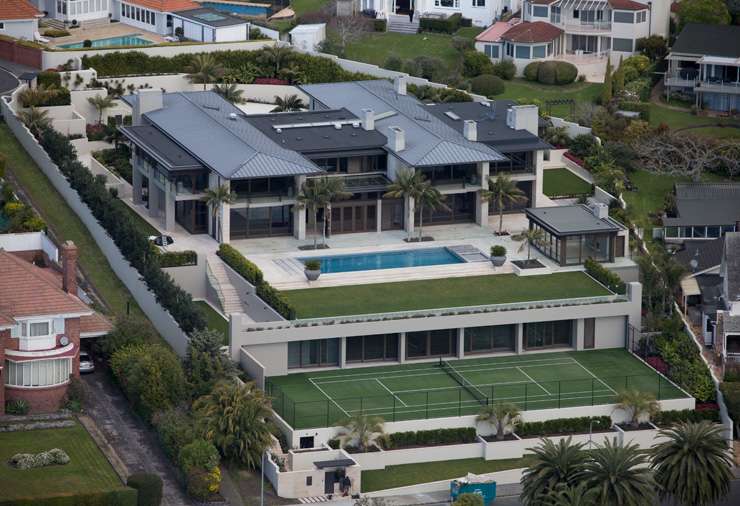
The former Hotchin mansion, in Orakei, Auckland, is still New Zealand's most expensive house. Photo / New Zealand Herald
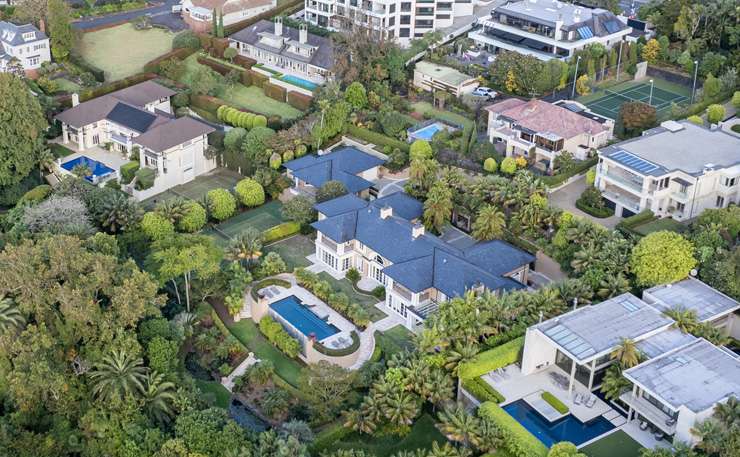
One of last year's top selling homes, a mansion on Remuera Road, in Auckland, which fetched $29m. Photo / Chris Tarpey
Olsen says the flight to property at the high end is unlikely to change anytime soon given the return on stocks and investments have been variable to downbeat.
The wealth gap is concerning, he says, especially with research showing 14% of parents are having to help their children into a home with most of those children unlikely to be able to pay them back.
“I guess it just reinforces the divide, certainly at a time when we see inflation at a generational high and we see the housing market turning around.”
Among agents seeing that divide in action is the Wall family from Wall Real Estate, which consists of father Graham and sons Andrew and Ollie, who are behind many of the country's top end sales and who hold various price records – the $38.5m paid for former Hanover Finance director Mark Hotchin's house in Orakei, Auckland in 2013 has yet to be beaten.
Wall Real Estate recently surpassed $1bn in sales for the last five years, and has had big recent sales, such as 21 Upland Road in Remuera which fetched $11.6m ($2m over CV) and 288 Remuera Road which sold for $29m, last year's top residential price.
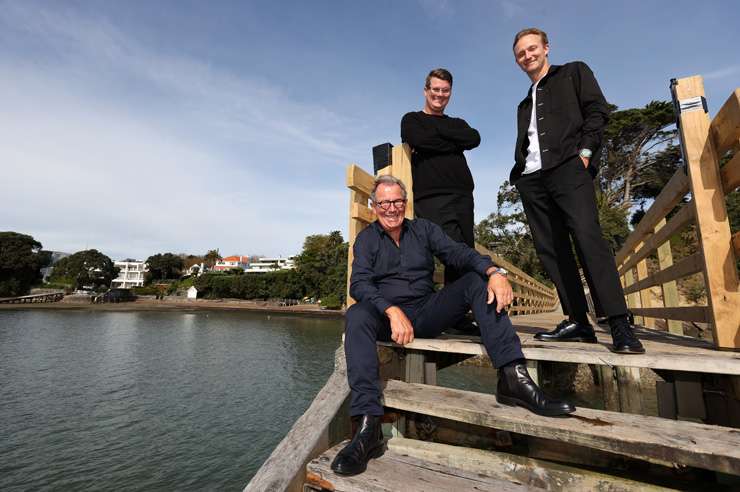
Wall Real Estate agents Graham, Andrew and Ollie Wall. The team hold several house price records. Photo / Fiona Goodall
Andrew Wall says the offers keep coming, and these big prices are signs the wealthy believe property is the best place to invest their money, particularly in unstable times.
"You need to invest it in the dirt we're standing on; it's the only thing that's solid.”
Wall talked about meeting the occasional Covid millionaire: "I met a guy who made a lot of money in face masks and another guy who made a lot of money in sanitisers.
“We meet the most amazing people from all sorts of industries."
When spoken to, Wall was about to meet with someone in the film industry and then with someone who had a kitchen business, saying, “it amazes me how wealthy these guys have become.”
Buyers in T-shirts and stubbies
Paul Neshausen, a top agent for Barfoot & Thompson in Auckland’s St Heliers, says New Zealand has a growing number of tech and other millionaires.
"Given what I see on a day-to-day basis, I think the wealthy have got wealthier. I guess you could say because of Covid but if you drilled down on that it's probably because they had a strategy for their business during Covid.”
He has clients who have seen their wealth double, and some are younger, he says.
"The wealthy set has changed from 60s-plus to 40s-plus. You can't judge a book by its cover, man.
"They look too young to be able to afford a house that I'm selling, whereas in fact they end up being the buyer.”
Michael Boulgaris, who sells to the wealthy mainly around the leafy Auckland suburbs of Epsom, Remuera, St Heliers, Kohimarama, Mission Bay, Orakei and Mt Eden, says while there are more $10m buyers than ever before, that amount of money does not necessarily buy a home with a tennis court, let alone an unimpeded water view.
“Your entry level for a decent house - just entry level - on less than 1000sqm, is $6m now in a good location.”
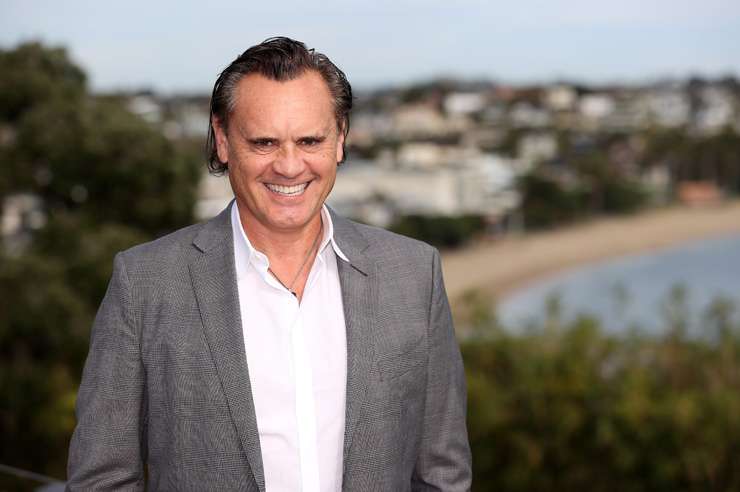
Barfoot & Thompson agent Paul Neshausen: "They look too young to be able to afford a house that I'm selling, whereas in fact they end up being the buyer.” Photo / Fiona Goodall
To buy a fabulous view as well, people are paying well over the $10m mark, and $10m itself is no longer a “spooky” number to mention, he says.
“Two years ago it wouldn't be the same conversation. You'd still be looking for the elusive $10m buyer but not today.”
He has noticed a change in the wealthy, saying clients are a lot more accommodating and attentive to advice than they were a year or two ago.
“They know that cash isn't a thing so they don't rule the market saying 'I'm a $10m cash buyer'. They don't have the power they used to have."
Covid has also relaxed top-end buyers in other ways.
"People turn up today in stubbies and shorts and T-shirts. Since Covid lockdown, the last two years, people don't wear suits much anymore.
"These buyers with $10m or $20m turn up with jandals and shorts and they're really cool. People have taken a real different outlook and perspective on life.”
The Covid factor
James Wilson, head of valuation for Valocity, says properties that sell in the $5m and $10m price range are no longer top echelon homes in places like Remuera and Herne Bay.
"I think it's still quite surprising for people to get their head around, especially those that live outside of Auckland, just what sort of bang for your buck you get in some of those higher value suburbs."
While still buying a nice home, he says, "they are not your clifftop mansion that once upon a time $5m properties would have been in New Zealand.
"They are not going to be wide water views at that price bracket - that world has well and truly changed."
Analysis of the Valocity data shows buyers of $10m homes are generally people capitalising on equity gains who are trading up, Wilson says.
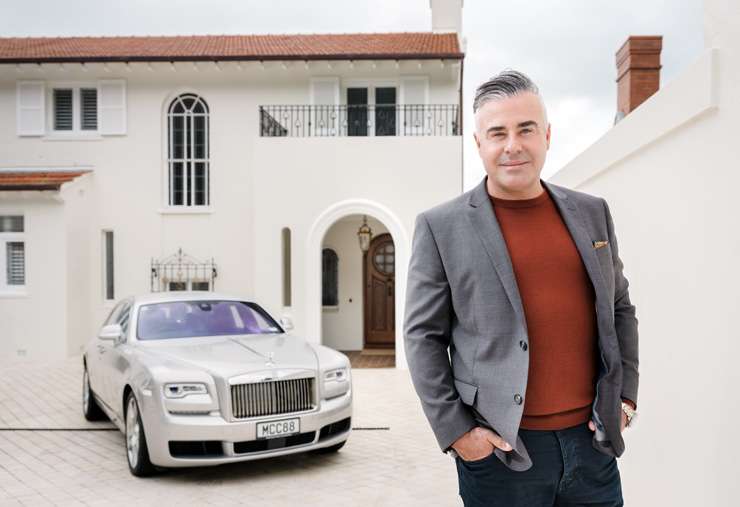
Boulgaris Realty agent Michael Boulgaris: “Your entry level for a decent house - just entry level - on less than 1000sqm, is $6m now in a good location.” Photo / Ted Baghurst
"It seems extreme trading up from a property worth $5m to $10m but it really is the same as someone trading up in a lower value location. It's just that they've got a few more zeroes at the end.
"Covid did absolutely drive a surge of demand but it also unlocked the potential to do those kinds of trade-ups for many people."
Wilson says the data reveals no surprises in the top towns or the top streets - Victoria Avenue and Arney Road in Remuera and Argyle Street in Herne Bay, both of which are pricey Auckland suburbs.
"Where the high value stock typically sits is relatively consistent over time and that's one of the reasons why high net buyers like that stock - it's almost like an asset they can trade and transact relatively liquidly because it's always going to be maintained by being in those locations."
But Boulgaris says change is coming to wealthy suburbs and not from a market collapse at the top end.
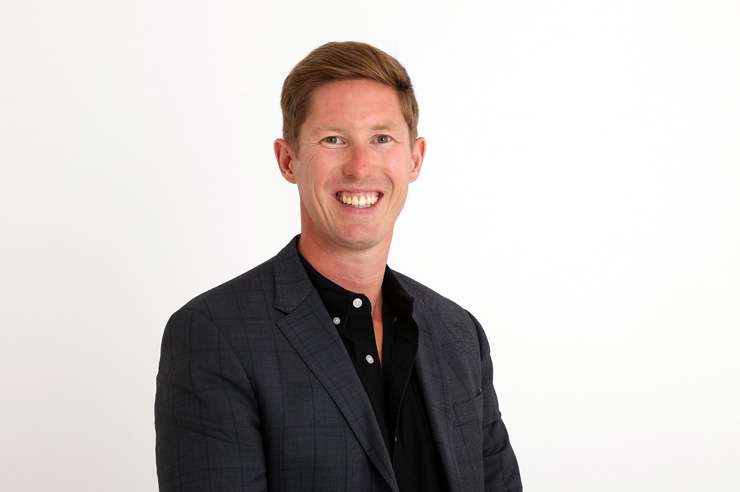
Valocity director of valuations James Wilson: "It seems extreme trading up from a property worth $5m to $10m but it really is the same as someone trading up in a lower value location. It's just that they've got a few more zeroes at the end.” Photo / Fiona Goodall
Rather, the change is coming from the Government's intensification plans, such as the allowing of apartment towers to be built near train and transport hubs, and also because of the controversial Housing Supply Bill, a Labour/National housing accord which paves the way for three homes of up to three storeys to be built on most sites without the need for resource consent.
This could result in the "rape of Remuera" and other suburbs, says Boulgaris.
"You imagine around Remuera Road or somewhere like that where there are expensive homes and big homes with a tennis court. There will be a lot of fear now.
"Could a development spring up next door? It's going to almost be a buyer beware, or do your own homework, because there's no guarantee of privacy or a high rise going up next door to you if you've got one of those beautiful big homes.”
Neighbourhoods under pressure
Gary Wallace, a top agent with Bayleys Remuera, is also concerned about the impact of intensification.
He puts the entry point in Remuera at $5m now but says the suburb could become a bit more affordable over time if large character homes are allowed to be demolished to make way for development.
This would be an assault on people's property rights, he says, with values affected by potentially ugly developments over the fence.
Wallace says he understands the need for affordable housing but objects to the lack of planning, and says buyers are voicing concern.
"People will say, 'it's a lovely spot - that's a nice home next door, what could be built there?’
"The face of our suburbs as we know and respect them today is changing, whether you like it or not.
"There are properties that will lose their value because of what is being built on their boundaries."
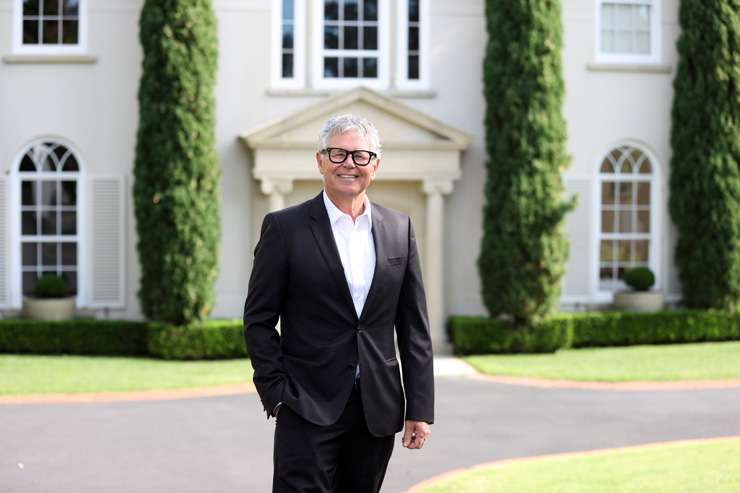
Bayleys agent Gary Wallace: "The face of our suburbs as we know and respect them today is changing, whether you like it or not. There are properties that will lose their value because of what is being built on their boundaries." Photo / Fiona Goodall
Some buyers won't even engage, he says: "They'll go somewhere else. They'll say 'why would I want to live next door to that'."
In another change, as house prices have skyrocketed, more pricey homes are heading to auction rooms.
Murray Smith, auctioneer with Barfoot & Thompson, says 10 years ago $2m or $3m homes were considered high end and were not generally taken to auction, but that has changed.
“We might see something selling at auction over $5m once or twice a month these days."
He expects $10m homes will be seen in auction rooms, too.
Smith sold a Maungakiekie Avenue property in Greenlane at auction for $9.9m a little over a year ago, a sum understood to still be the auction record for a residential home.
Another property, in Arney Road, Remuera, sold for $8m under the hammer in 2020, defying the $6m expectations.
Why wouldn't you bring expensive properties to auction, Smith asks.
"Anything that's premium is auctioned. You know, paintings, artwork, horses, so maybe it’s finally come to fruition in this price bracket."
Bayleys national auction manager Connor Patton also says it's no longer uncommon to see $5m-plus properties up for auction.
“There's more confidence from agents and from owners that there is some genuine depth to the number of people willing and able to spend that sort of money."
The market outside Auckland
Outside of Auckland, Queenstown is the main hub for wealthy buyers, although more $5m sales are being seen in Tauranga.
Stephen Shale, who auctions for Bayleys in the Bay of Plenty, Waikato and Taranaki, says there aren't wealthy suburbs in these locations so much as the rule that the nearer to water a property, the higher the price.
In the Waikato, that means near the river, or Raglan and the Coromandel beaches.
In the Bay of Plenty, it's Mt Maunganui and Papamoa or the inner Tauranga Harbour, and in Rotorua it's by the lakes.
"We don't have a Remuera as such in Hamilton because you can be in one suburb on the water at the river and you could be 200 metres back in the same suburb but your price is dramatically different.”
In Wellington, $5m sales have increased in suburbs like Mt Victoria, Kelburn, Wadestown, Roseneath and Oriental Bay, but there aren't many properties for sale at that price in the Capital, says Antonia Brown, sales manager of Harcourts Wellington City.
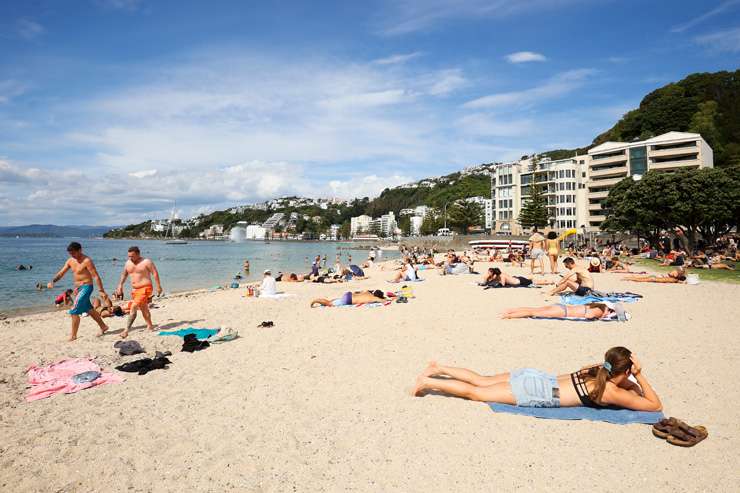
Big spenders in the country's capital flock to the high-end apartments of Oriental Bay. Photo / Getty Images
She wasn't sure why there weren't more $10m homes in Wellington, saying there are people who can afford them, but she thinks perhaps the steep topography could be part of the reason.
A new trend in Wellington is the emergence of luxury apartments around the inner-harbour which can fetch $4m and $5m and are popular with older people who have money.
"They don't want windy, draughty, three-storey villas up a steep hill any more. There are a lot of hills, a lot of sloping gardens, a lot of stairs and a lot of high-maintenance old wooden houses.”
Brown also says Wellington's big buyers are not flashy people: "When they come and sit in your auction rooms you know who they are and they're sitting there in their corduroys and their woolly jersey and they own half of Wellington."
She thinks rather than put all their money into a great big home, wealthy Wellingtonians are more likely to buy another home in Martinborough as well, or on the Kapiti Coast, or Queenstown.
International interest
In Christchurch, Cameron Bailey, a top agent with Harcourts Papanui, says $10m sales are non-existent, though there are properties of that ilk out there.
High end starts at about $4m in suburbs like Fendalton and Merivale and sales are usually to local buyers, he says.
Fendalton is the "Remuera of Christchurch" because of its larger land parcels: "It all starts with the land and the land we're selling in Christchurch at the moment in the good areas is over $2000 a square metre."
Queenstown, with its snow-capped mountains and stunning lakes, continues to attract big spenders with Mark Harris, of New Zealand Sotheby’s International Realty, reporting sales of $15m and $23m to Kiwis and Australians.
"I think we did five of the top 10 last year and probably half of them were Aussies; Sydney and Melbourne."
Ross Hawkins, a top salesperson for Ray White, Black Group Realty Ltd, also sells in Queenstown and elsewhere, and expects to see more Australians with the country opening back up.
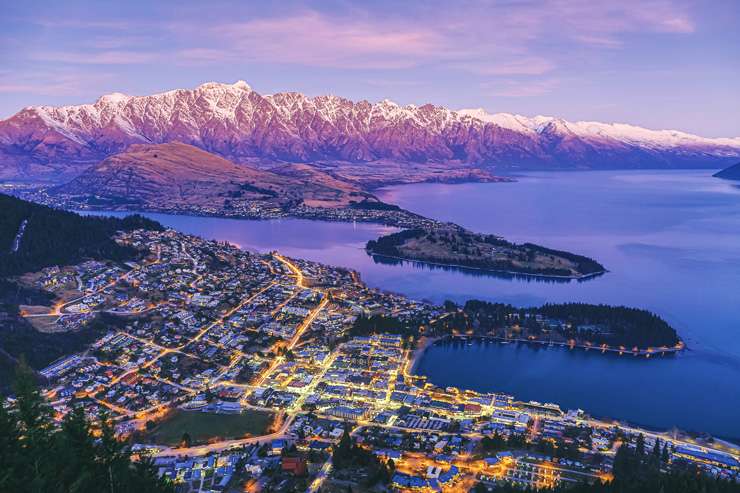
Now the borders are open, Queenstown property is back on the radar of wealthy Australian buyers. Photo / Getty Images
They want to get away from bush fires and 40-degree heat, he says, and he expects wealthy Australians may be among those attracted to a new form of shared ownership called fractional ownership, something he says has been seen more in Europe and other parts of the world than New Zealand.
Unlike timeshares, fractional ownership gives buyers a share of a luxury property as a transferable title which they can sell.
Hawkins is working with a developer on a $30m off the plan property, Parore, offering eight shares for $3.75m each and he says there's plenty of inquiry.
He thinks fractional ownership will be popular because in Queenstown there are many expensive homes that sit empty for most of the year.
"A lot of these wealthy people are pretty smart with their money,” he says.
"You'd be better to have shares in four different houses in different parts of the world rather than having it all in one house in one place."














































































